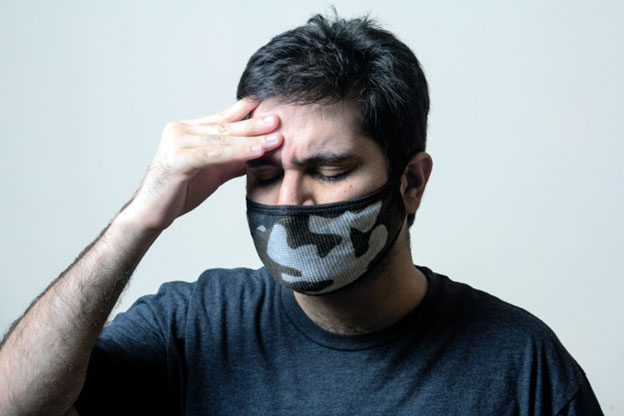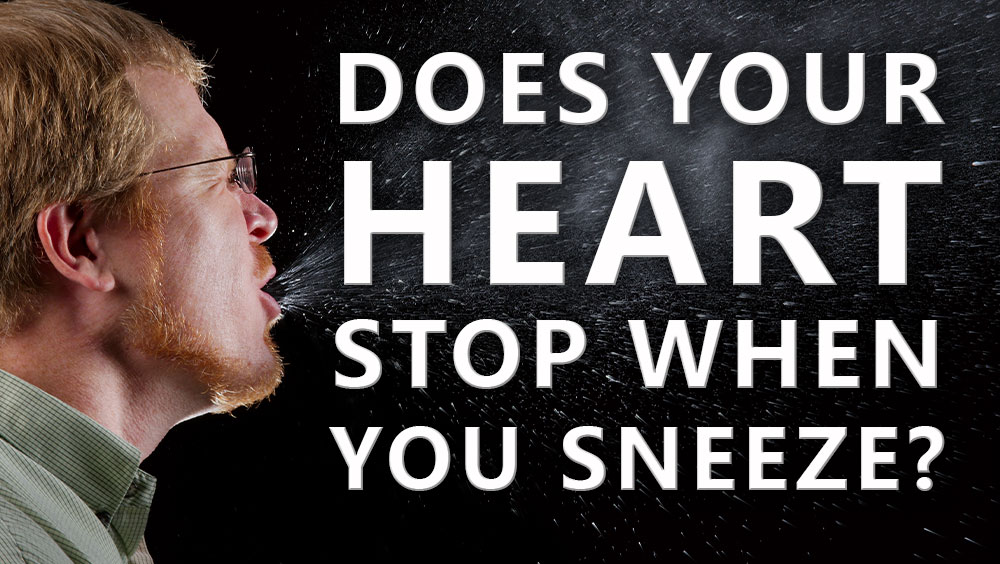Have you ever heard the intriguing claim that your heart stops when you sneeze? It's a curious notion that has circulated for generations, often whispered in hushed tones during a hearty bout of sneezing. But is there any truth to this belief, or is it just another one of those enduring myths that seem too fascinating to let go of?

In this article, we will dive deep into the world of sneezing and explore the science behind this age-old myth. We'll unravel the mystery, separating fact from fiction, and discover what truly happens when you sneeze.
Causes Of Sneezing
The most prevalent cause is nasal irritation, often due to foreign particles like dust, pollen, or allergens, which prompt the body to expel these irritants. Additionally, a viral infection such as the common cold or flu can stimulate sneezing as the body's defense mechanism to clear the airways.
Certain medical conditions, such as allergic rhinitis, sinusitis, or nasal polyps, can lead to chronic sneezing. Bright sunlight or sudden exposure to a strong light source, known as photic sneezing, is another intriguing cause related to the optic nerve's interaction with the trigeminal nerve. Finally, some individuals experience sneezing as a response to strong odors or spicy foods, showcasing the diverse array of triggers that can induce this reflexive and essential bodily function.
The Myth of Heart Stopping
Let's begin by addressing the widespread belief that your heart temporarily stops when you sneeze. This myth isn't confined to a single culture or community; it's a notion that has transcended borders and generations. Many of us have heard this claim, and some might even swear by its authenticity. But before we delve into the science, let's acknowledge how deeply ingrained this myth is in our collective consciousness.
What Happens During a Sneeze?
Before we debunk the myth, it's essential to understand what occurs during a sneeze. Sneezing is a rapid and involuntary process triggered by various factors, primarily irritation in the respiratory tract. This reaction involves a symphony of physiological responses, including the contraction of respiratory muscles and the diaphragm.
The Physiology of a Sneeze
Sneezing as a Reflex:
Sneezing is, in fact, a reflexive action. When an irritant stimulates the sensory nerves in the nasal passages, it sends a signal to the nervous system. The brain, in turn, orchestrates the sneeze by coordinating various muscle groups (including chest muscles), and the body reacts with an explosive expulsion of air and irritants.
The Heart's Response:
But what about the heart? While a sneeze can briefly change heart rate and blood flow, it's important to clarify that the heart doesn't stop during this process. One notable effect of a sneeze is the increase in intra-thoracic pressure, which can cause fluctuations in heart rhythm and blood pressure.
Changes in Heart Rate
Brief Fluctuations:
During a sneeze, the vagus nerve is activated, leading to a temporary increase in heart rate. This might be the source of the myth that your heart "stops" during a sneeze. However, this increase in heart rate is fleeting and doesn't result in a full stoppage of the heart.
Resumption of Normal Function:
Remarkably, the heart quickly resumes its normal rhythm after the sneeze. Our bodies are designed to maintain blood circulation even during moments of intense physical activity, such as sneezing.

Debunking the Myth
Medical Expert Opinions:
To put the myth to rest, we can turn to medical professionals and scientific studies. Experts in the field have consistently debunked the notion of heart stoppage during sneezing. Their consensus is that there's no substantial evidence to support such a claim.
Research Findings:
Research studies have also weighed in on this topic, measuring intrathoracic pressure changes during sneezes. These studies consistently show that while there are fluctuations, there is no significant interruption in heart function during sneezing.
Conclusion
In this blog post, we embarked on a fascinating journey to debunk the age-old myth that your heart stops when you sneeze. We explored the common misconception surrounding sneezing and its alleged impact on the heart. Delving into the physiology of a sneeze, we revealed that sneezing is a reflexive action triggered by irritation in the nasal passage, involving a complex interplay of muscles and nerve endings.
Despite the widely held belief, we clarified that the heart doesn't actually stop during a sneeze. While a sneeze can lead to temporary fluctuations in heart rate and blood pressure, these changes are momentary and don't result in a cardiac arrest. Our bodies are well-equipped to maintain blood circulation, even during the forceful act of sneezing.
To further solidify this understanding, we cited medical experts and research findings that consistently refute the myth of heart stoppage during sneezing. So, the next time you feel your heart "skip a beat" while sneezing, rest assured that it's a natural response and not a cause for concern. Your heart keeps ticking, even during a powerful sneeze.
Frequently Asked Questions:
Is it true that your heart stops when you sneeze?
No, it's a common myth. While a sneeze does momentarily affect your heart rate, your heart doesn't stop.
Why do some people believe that their heart stops during a sneeze?
This belief likely arises from the sensation of a skipped heartbeat during a sneeze, which is actually a normal physiological response.

What causes the sensation of the heart skipping a beat during a sneeze?
The sensation of a skipped heartbeat is likely due to the rapid changes in intra-thoracic pressure during a sneeze, which can affect the heart's rhythm momentarily. However, it quickly returns to normal.
Can sneezing be harmful to the heart, especially for individuals with heart conditions?
Sneezing itself is not typically harmful to the heart, even for individuals with heart conditions. However, it's essential to consider individual circumstances. In rare cases, forceful sneezing might lead to a condition called "sneeze syncope." Sneeze syncope refers to fainting or losing consciousness during or after a sneeze as your blood pressure drops rapidly.
For people with certain heart conditions or those who are at risk of sudden drops in blood pressure, such as individuals taking medications that lower blood pressure, sneezing might pose a slight risk. However, this risk is exceptionally rare. If you or someone you know feel dizzy during sneezing, it's crucial to consult a healthcare professional to rule out any underlying issues and receive appropriate guidance. In most cases, with proper medical management, even individuals with heart conditions can sneeze without major concerns.


